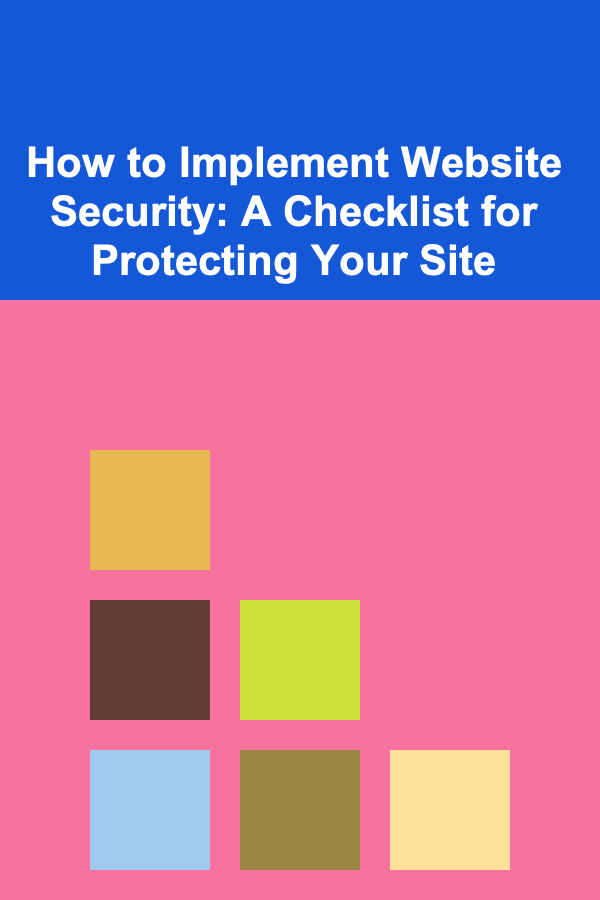
10 Tips for Marketing Your Indie Game on a Budget
ebook include PDF & Audio bundle (Micro Guide)
$12.99$9.99
Limited Time Offer! Order within the next:
Not available at this time

Marketing is a critical component of the success of any indie game. While the game's development might require a lot of time, energy, and resources, how you promote and market it can be just as important, if not more so. For indie developers, however, there are often financial constraints that make large-scale marketing campaigns or big-budget advertising campaigns unfeasible. Fortunately, there are a number of budget-friendly strategies and tools that can help you spread the word about your indie game without draining your resources.
In this article, we'll explore 10 tips for marketing your indie game on a budget. These tips focus on low-cost strategies that maximize your impact while helping you build a community and attract players to your game.
Leverage Social Media Platforms
Social media is one of the most powerful tools available for indie game developers, offering a cost-effective way to engage with potential players. With billions of users across platforms like Twitter, Instagram, Facebook, Reddit, and TikTok, social media is a vital marketing tool to promote your indie game.
Twitter is home to many indie game developers, gaming journalists, and influencers, making it a great place to share updates about your game and join conversations around game development and gaming culture. It's common for developers to share short updates about their progress, development hurdles, and sneak peeks of in-game footage.
Pro Tip: Make use of popular hashtags like #indiegame, #indieDev, #gamedev, and specific game genre hashtags to reach a broader audience. Engage in relevant Twitter chats, and follow influential accounts to create connections.
Instagram is a visually-driven platform, ideal for sharing screenshots, short gameplay videos, or behind-the-scenes glimpses of your game's development. Use Instagram Stories and Reels to showcase quick updates, teaser trailers, or unique aspects of your game.
Pro Tip: Focus on the visual aspects of your game to create shareable content. Consistently posting your progress and using popular hashtags can help your game get noticed.
While Facebook's organic reach has been reduced in recent years, it's still an essential platform for sharing updates, creating a fan page, and connecting with a diverse range of players. Join game development groups and gaming communities to share your progress and build relationships with potential players.
Subreddits like r/gamedev and r/IndieDev are great communities where developers share insights, seek advice, and showcase their games. Reddit's format allows for engaging with other developers and players, helping you to build awareness of your game in a way that feels personal and authentic.
Pro Tip: Avoid spamming promotional posts. Instead, contribute valuable content like dev diaries, tutorials, or gameplay tips to build your credibility and generate organic interest.
Create a Compelling Website or Landing Page
A professional, user-friendly website or landing page can significantly enhance your game's credibility and help with marketing efforts. Your website should provide essential information about your game, including screenshots, trailers, and a description of what makes it unique.
A landing page can also serve as a hub for your marketing efforts, helping you collect email addresses for a mailing list. You can use this list to keep fans up-to-date with development progress, announce launch dates, and offer exclusive content or promotions.
Pro Tip: Use simple website builders like Wix, WordPress, or Squarespace to create an attractive landing page without breaking the bank. Include strong calls to action (CTAs) for visitors to follow your game on social media, sign up for newsletters, or pre-order.
Engage in Influencer and Content Creator Outreach
Influencer marketing doesn't have to involve paying major influencers or streamers with millions of followers. Many content creators focus on indie games and are often open to reviewing or showcasing your game, especially if it fits within their niche. Reach out to smaller YouTubers, Twitch streamers, and TikTok creators who specialize in indie games.
Tips for Influencer Outreach:
- Personalize your outreach: Instead of sending generic emails, personalize your messages. Mention why you think their audience would enjoy your game.
- Offer a free demo or early access: Give influencers a taste of your game by offering a demo or early access.
- Collaborate on streams or videos: Offer to collaborate with influencers on special content, such as Q&A sessions, live gameplay, or exclusive behind-the-scenes content.
Pro Tip: Micro-influencers (those with a smaller but dedicated following) can be particularly cost-effective. These creators often have a higher level of engagement with their followers, making their endorsements more impactful.
Host Giveaways and Contests
Giveaways are an excellent way to generate buzz and build an audience quickly. People love free stuff, and hosting a giveaway can encourage users to engage with your game on social media, help spread the word, and bring new fans to your project.
Ideas for Giveaways:
- Free game copies to early backers
- Exclusive in-game items or bonuses
- Merchandise like T-shirts or posters featuring art from your game
Pro Tip: Promote the giveaway through social media and gaming forums. Encourage participants to follow you on social media, share your posts, or sign up for your newsletter to enter. This not only generates buzz but also helps build your community.
Join Game Jams and Competitions
Game jams are time-limited events where developers create a game in a short period, typically 48 to 72 hours. Participating in game jams can help you refine your game design skills, get feedback from other developers, and promote your game to a broader audience. Many game jams have large online communities that give exposure to developers who participate.
Additionally, there are several indie game competitions where you can submit your game for a chance to win prizes and gain recognition.
Pro Tip: If you don't win, don't be discouraged. Simply entering these events provides exposure to your game and gives you valuable experience interacting with the game development community.
Utilize Game Distribution Platforms
While Steam is one of the largest digital storefronts for PC games, there are many other platforms that indie developers can use to distribute their games. Platforms like itch.io, Game Jolt, and GOG offer developers a chance to gain visibility without needing to invest in expensive ads.
These platforms also have communities that support indie developers and offer promotional opportunities.
Pro Tip: Focus on creating an appealing storefront on these platforms. A well-crafted game page with engaging screenshots, videos, and detailed descriptions can help convince potential buyers to purchase.
Create Dev Blogs and Developer Diaries
Writing blog posts or developer diaries is a fantastic way to share the story of your game's development. Not only does it give you the chance to showcase your journey, but it also helps foster a deeper connection with your audience. Players enjoy learning about the challenges and successes you encounter while building your game.
These blog posts can be shared on your website, social media, or even submitted to indie game websites that accept guest posts.
Pro Tip: Consider posting dev updates regularly to keep your followers engaged. Share progress updates, art development, or challenges you face. The more authentic and transparent you are, the more connected your audience will feel to your game.
Reach Out to Gaming Communities
There are numerous gaming communities online where players and developers interact, share experiences, and talk about new games. Forums like NeoGAF, ResetEra, and even niche Reddit subreddits provide opportunities for developers to showcase their games to an engaged audience.
Additionally, there are many Discord communities for game development, where you can receive feedback and share your progress. Some Discord servers are dedicated to helping indie game developers with exposure and feedback, making them invaluable for promoting your game.
Pro Tip: Instead of focusing purely on self-promotion, make an effort to engage meaningfully within the community. Share your knowledge, help others, and contribute valuable content, so your promotional posts come off as genuine rather than spammy.
Use Email Marketing to Build a Community
Email marketing is an incredibly effective way to directly communicate with potential players. Collecting emails through your website, social media, or even game demos gives you the opportunity to send updates, exclusive offers, or announcements directly to your most engaged followers.
Creating a simple email newsletter can help you keep your community engaged and excited about your game as you approach launch. Make sure to include valuable content, such as progress updates, behind-the-scenes insights, and early access invitations.
Pro Tip: Tools like Mailchimp or ConvertKit offer free or low-cost plans for email marketing. Make sure your emails are visually appealing, concise, and contain strong calls to action.
Attend Events (Virtually or Physically)
If budget allows, attending gaming conferences, conventions, and expos can be a powerful way to promote your indie game and meet industry professionals, journalists, and players. However, if traveling isn't an option, many of these events have gone virtual, making it easier to attend and showcase your game remotely.
Virtual events, such as digital game festivals on Steam or Twitch, allow you to gain exposure to a massive audience without the costs associated with physical travel.
Pro Tip: Take advantage of press kits and outreach during these events. Make sure journalists and influencers have easy access to your game's key details, assets, and download links.
Conclusion
Marketing an indie game on a budget is undoubtedly challenging, but it's also entirely possible with the right approach. Social media, influencer outreach, giveaways, community building, and other grassroots marketing tactics can help you reach your audience without a hefty price tag. The key is consistency, authenticity, and building relationships with your audience over time.
By combining creative strategies, engaging content, and community involvement, you'll be able to successfully market your indie game and build a loyal fan base, all while keeping costs low.

How to Implement Website Security: A Checklist for Protecting Your Site
Read More
How to Set Up an Online Store for Your Small Goods Business
Read More
How to Use Labels Effectively in Your Paper Organization
Read More
How To Monetize Your Travel Content
Read More
How to Give a Tribute Speech
Read More
How to Choose Healthy Protein Powders
Read MoreOther Products

How to Implement Website Security: A Checklist for Protecting Your Site
Read More
How to Set Up an Online Store for Your Small Goods Business
Read More
How to Use Labels Effectively in Your Paper Organization
Read More
How To Monetize Your Travel Content
Read More
How to Give a Tribute Speech
Read More